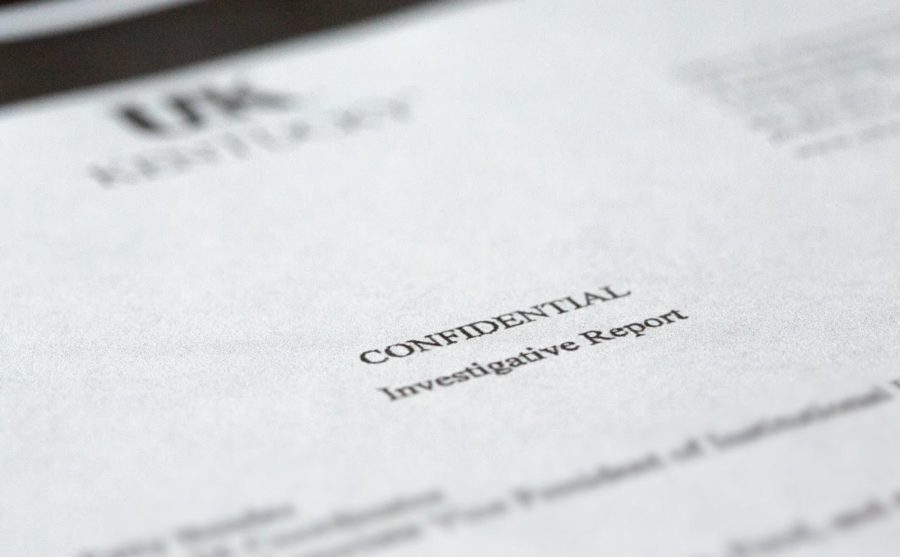UK’s suit for secrecy betrays public interest
August 13, 2016
A University for Kentucky would not knowingly break the law in a selfish and wasteful pursuit of secrecy.
But the University of Kentucky did.
UK recently announced it would sue the Kentucky Kernel and broke the law to hide documents about a Title IX investigation into sexual assault and sexual harassment accusations leveled against a faculty member.
So who were university officials trying to protect?
President Eli Capilouto wrote in an email to campus they hid the records to protect any possible victims. But the documents — recently released to the Kernel by a confidential source — expose serious flaws in his argument.
The records given to the Kernel showed that the names of all complainants and witnesses could be redacted. The documents show at least four students told UK’s Title IX officials that they and an unnamed student were sexually harassed or sexually assaulted by associate professor James Harwood.
Those officials completed their investigation and recommended that UK fire Harwood and revoke his tenure. The university instead accepted a resignation agreement that allows him to receive pay and benefits through Aug. 31.
The report said Harwood called the allegations “preposterous” and told investigators he was shocked to learn that students said he groped and grabbed them without their permission.
The ability to redact names and identifiers of victims and witnesses shows Capliouto’s privacy claim was wrong at best. UK and other public institutions regularly redact names, identifiers and sensitive information when they release public documents.
The effort university officials put into sealing these records raises doubts about their true intentions.
When UK denied the Kernel’s open records request for all documents pertaining to the investigation in April, the independent student newspaper appealed to the Attorney General, the state’s chief law enforcement officer.
Public institutions are required under the Open Records Act to release documents to the Attorney General for inspection during these appeals.
UK refused, showing either a disturbing ignorance of the law or a complete disregard for it. The university showed it cares more about its own interests than it cares about the law, accountability or the public’s right to information.
Capilouto should realize checks and balances do not stop at the statehouse. All employees of Kentucky — whether they are police officers, governors, university presidents or associate professors — must be held accountable.
When someone accuses one of those public employees of a crime, Kentuckians have a right to know what happened.
If the university was still investigating the Harwood case, things would be different.
Those records would be part of an ongoing investigation, and it would not be fair to release them. But the investigation is over.
The Attorney General then ruled UK should release the documents and redact the names and identifiers of complainants and witnesses.
UK’s only way to appeal that ruling is to file suit against the Kernel. Capilouto announced in a campus-wide email this week that the university would take the case to court.
The lawsuit is a waste of public money and a stain on the university’s image. And now, with the documents made public outside of UK’s control, Capilouto’s message of fighting for the privacy of victims is falling apart.
Email opinions@kykernel.com



























































































































































